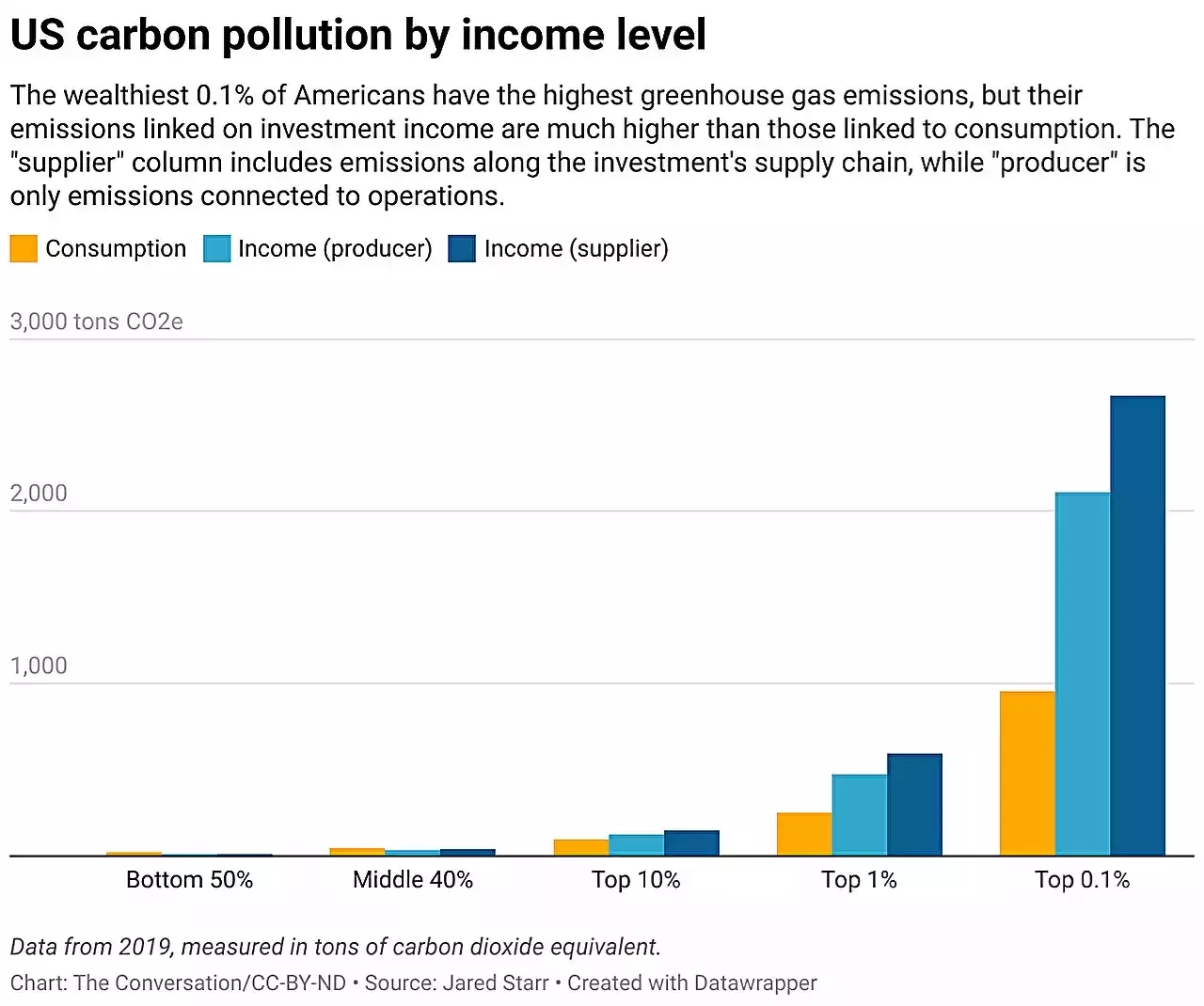from the U.S. Census Bureau and Bureau of Labor Statistics' monthly labor force survey, which includes respondents' job, demographics and income from 35 categories, including wages and investments. People's wages we connected to the emission intensity of the industries that employ them, and we based the emissions intensity of investment income on a portfolio that mirrors the overall economy.
In the income-based approach, the share of national emissions coming from the top 1% of households is 15% to 17% of national emissions. That's about 2.5 times higher than their consumer-related emissions, which is about 6%. In the bottom 50% of households, however, the trend is the exact opposite: Their share of consumption-based national emissions is 31%, about two times larger than their income-based emissions of 14%.A couple things are going on here. First, the lowest earning 50% of U.S. households spend all that they earn, and often more via social assistance or debt. The top income groups, on the other hand, are able to save and reinvest more of their income.
Second, while high-income households have very high overall spending and emissions, the carbon intensity—tons of carbon dioxide emitted per dollar—of their purchases is actually lower than that of low-income households. This is because low-income households spend a large share of their income on carbon-intensive basic necessities, like home heating and transportation. High-income households spend more of their income on less-carbon-intensive services, like financial services or higher education.
